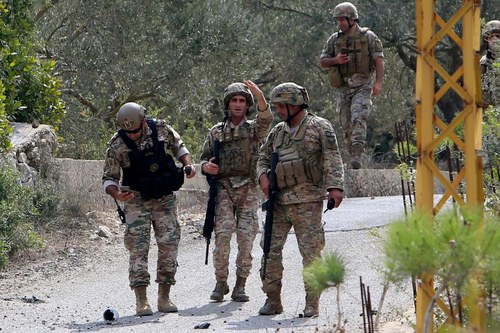Jerusalem: Israel will raise its defence spending by 42 billion shekels (about 12.5 billion US dollars) in 2025 and 2026, the ministries of finance and defence said Thursday in a statement.
Local media reported that the budget agreement will allow the Defence Ministry to “advance urgent and essential procurement deals critical to national security.”
According to the ‘Times of Israel’, Finance Minister Bezalel Smotrich said the new defence budget “fully covers the intense fighting in Gaza, alongside comprehensive security preparations for all threats – from the south, the north, and more distant arenas.”
It added that the current annual defence spending is 110 billion shekels, about nine per cent of gross domestic product, out of a total 2025 budget of 756 billion shekels, Xinhua news agency reported.
Military costs have surged since Israel launched a ground and air offensive in Gaza following the October 7, 2023 attack, in which Hamas-led fighters killed about 1,200 people and took 251 hostages, according to Israeli figures.
Apart from the offensive in Gaza, Israel also carried out regular attacks in the West Bank and Lebanon, and has launched waves of airstrikes in Syria, most recently, all of which have met with strong condemnation from the international community
Earlier in March, the Chief of Israeli Defence Forces, Eyal Zamir, described Israel’s survival as requiring a constant struggle in “a hostile environment” in the Middle East.
“Israel faces a constant, fundamental existential threat. Surrounded by ruthless enemies who seek our destruction, we must continue to strengthen and fortify the ‘iron wall,'” he said, calling for increased military reinforcement and a higher defence budget.
Earlier this week, Israel’s military said it had established a new military road in the Gaza Strip, bisecting eastern and western Khan Younis in the south of the strip.
In a statement, the military said the so-called ‘Magen Oz Corridor’ is “a key component in applying pressure on Hamas and achieving the decisive defeat of its Khan Younis Brigade.”
The corridor, which stretches about 15 km, is the fourth such route Israel created by razing buildings and infrastructure to divide the enclave. These strips of land have been a major obstacle in previous ceasefire negotiations, with Israeli Prime Minister Benjamin Netanyahu vowing not to withdraw forces from several of them.






































